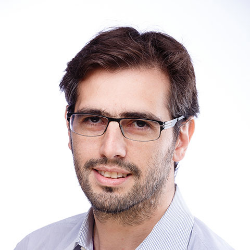
From 1975 to 1990, Lebanon experienced a long war involving various national and international actors. The peace agreement that followed and officially propelled the country into a "postwar" era did not address many of the root causes of war, nor did it hold main actors accountable. Instead, a politics of "no victor, no vanquished" was promoted, in which the political elite agreed simply to consign the war to the past. However, since then, Lebanon has found itself still entangled in various forms of political violence, from car bombings and assassinations to additional outbreaks of armed combat.
In this presentation, the anthropologist Sami Hermez will argue that the country's political leaders have enabled the continuation of violence and will examine how people live between these periods of conflict. What do everyday conversations, practices, and experiences look like during these moments? How do people attempt to find a measure of certainty or stability in such times? Hermez's ethnographic study of everyday life in Lebanon between the volatile years of 2006 and 2009 tackles these questions and reveals how people engage in practices of recollecting past war while anticipating future turmoil.
Hermez demonstrates just how social interactions and political relationships with the state unfold and critically engages our understanding of memory and violence, seeing in people's recollections living and spontaneous memories that refuse to forget the past. With an attention to the details of everyday life, he shows how even a conversation over lunch, or among friends, may turn into a discussion about both past and future unrest. Shedding light on the impact of protracted conflict on people's everyday experiences and the way people anticipate political violence, Hermez highlights an urgency for alternative paths to sustaining political and social life in Lebanon.
Sami Hermez teaches anthropology at Northwestern University in Qatar and is the author of War Is Coming: Between Past and Future Violence in Lebanon (University of Pennsylvania Press, 2017). His research focuses on the everyday life of political violence in Lebanon, and his broader concerns include the study of social movements, the state, memory, security, and human rights in the Arab World. He has held posts at Harvard University, the University of Pittsburgh, Mt. Holyoke College, and the Centre for Lebanese Studies, St. Antony’s College, Oxford University. His professional experience includes work with the United Nations Capital Development Fund and World Bank in New York and Sana’a, Yemen, as well as a stint with the UN Development Program in Beirut.
co-sponsored by Northwestern University in Qatar (NU-Q) and the Department of Anthropology
Cost: Free of charge and open to the public!
Audience
- Faculty/Staff
- Student
- Public
- Post Docs/Docs
- Graduate Students